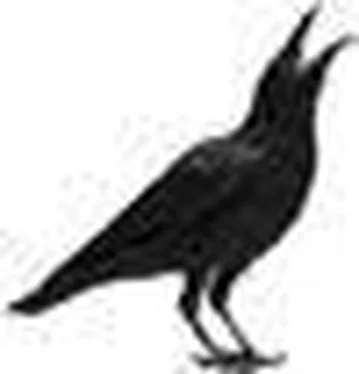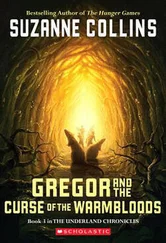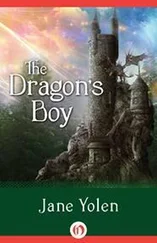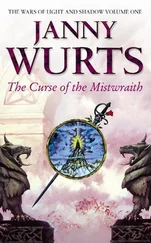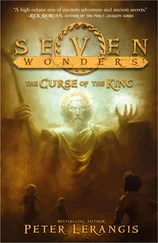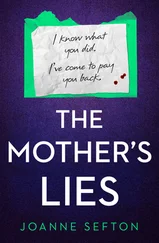It was well past midnight when we returned to our rooms at the Plaza. The doctor seemed on the verge of collapse, and I urged him to rest. He resisted at first, and then saw the reasonableness of it, relenting only after he barricaded us inside. He pushed the divan against the bedroom door and, after contemplating the eight stories between us and the ground, pulled the large dresser over to block the window.
He laughed mirthlessly. “Madness . . . madness!” he muttered.
“Dr. Warthrop, may I ask a question, sir? In the wilderness you told me perhaps there might be some creature like the Wendigo. . . . Could it be that Dr. Chanler was attacked by one and . . . perhaps infected with something like I am? Something that gives him great strength and speed and—”
He surprised me by taking the suggestion seriously. “It has occurred to me, of course. Certainly some rather mundane organisms can cause madness and homicidal rage—jungle fever and other maladies that fall well outside the purview of monstrumology. But I reject von Helrung’s interpretation for a simple reason, Will Henry. It spits in the face of everything to which I have dedicated my life, the reason I turned my back upon . . .” He let the thought die unfinished. “We are doomed, Will Henry, if we do not set the past aside. Superstition is not science. And science will save us in the end. Though some might say it damned John—and not only John.” The words caught in his throat. He looked away and added softly, “My faith in it has cost much, but true faith always does.”
I waited for him to go on. There seemed to be something he was leaving unsaid. I can only guess what it was, but with great age comes perspective and, if we are lucky, a dollop of wisdom. The monstrumologist would not—could not—would never have admitted to the transformation of his friend into a supernatural beast. To do so would have been an acknowledgment that the woman he loved was doomed. He had to believe John Chanler was human, for if he wasn’t, the woman they both loved was already dead.
TWENTY-THREE
“I Should Have Known”
The venom of the khorkhoi , the doctor had warned me, was slow-acting. A victim might feel perfectly fine one day—and plunge into complete delirium the next. It may have been the Death Worm’s poison. It may have been that I had not slept more than four hours in total that night—or that those hours had been devoted to a twilight sleep adrift in a horizonless sea. Whatever the cause, I must confess my memory of the next few hours is vague—perhaps mercifully so.
I remember the bell ringing just before dawn and the doctor stumbling around in the dark. Snap to, Will Henry, snap to!
I remember Connolly standing in the lobby, and the dizzying sense of déjà vu at seeing him. Dr. Warthrop, you must come with me.
The cold predawn air . . . the stars fading in the indigo sky . . . the black brougham . . . the blur of darkened storefronts along Fifth Avenue . . . the shoveling of the white-coated sanitation workers calf-deep in the sidewalk filth, a noxious mixture of human and animal excrement deposited daily on the streets of the greatest city on earth.
Indeed, this was the hour of filth, when thousands upon thousands of chamber pots were emptied of their “night soil” directly onto the street from the brownstone and tenement windows, when the two million pounds of manure, produced the day before by a hundred thousand horses, lay piled in stinking four-foot-high drifts—high enough in some neighborhoods that a man might enter his second-floor walk-up without using the stairs. The hour when carts slid along ruts cut into muddy refuse, carrying the remains of the horses that had decayed enough to be broken apart and transported to the rendering house. The average horse weighed fifteen hundred pounds, too cumbersome to remove while whole, and so it would be left to rot on the street where it had died, a bloated, reeking feast for the “queen of the dung heap,” the typhoid fly, until the horse could be dismembered easily and carted away.
It was the hour of filth. The average workhorse produced twenty-four pounds of manure and several quarts of urine every day. The sheer enormity of that waste threatened the human population with extinction, as the waste bore the poisoned fruits of cholera, typhoid, yellow fever, typhus, and malaria. People literally dropped like flies—twenty thousand each year, most of them children—while the flies themselves prospered.
Each morning the manure was collected and hauled to special staging areas, called “manure blocks,” to await transport over the Brooklyn Bridge. The largest manure block was located on Forty-second Street, one block away from where a hundred thousand people got their drinking water, the Croton Reservoir.
The doctor’s haggard profile . . . the cold wind off the river . . . “I should have known. . . . I should have guessed.”
In spring the rains turned the streets into quagmires of mud and manure, and “crossing sweepers” cleared paths for the well-to-do ladies in their sweeping skirts, lest their finery be soiled. In dry weather, dust storms of pulverized manure blew through the broad avenues or floated like the volcanic ash of Pompeii, piling half an inch deep upon windowsills and the stalls of the fruit vendors and sausage sellers, particles fine enough to be inhaled. In this, the proudest city in America, you literally breathed shit.
The cries of the teamsters. The curses of the dray drivers. The harsh call of crows. And the doctor beside me: “I should have known. . . . I should have guessed.”
The dizzying stench of the six-foot-high city-block-long banks of spilth, a foul miasma of garbage, excrement, and animal parts—and the maddening hum of a million blowflies. . . .
A burly black-clad figure appeared against the backdrop of that worm-infested replica of Dante’s hell, the largest manure block, on Forty-second Street. The monstrumologist leapt from the carriage and accosted Chief Inspector Byrnes.
“Where?” Warthrop demanded.
Byrnes pointed to the top of the hill, and Warthrop started up the slick slope to the top. It was a hard climb; he sunk to his calves in the muck.
“No! Stay here,” he called to me when I started to follow.
Byrnes must have concurred, for he laid a huge hand upon my shaking shoulder, his full lips working the expired stump of his cigar. I saw the doctor’s head disappear over the horizon of waste. Only a moment must have passed, but it seemed an eternity before I heard his cry—a sound unlike anything else I have ever heard. It was difficult to imagine a human being producing such a sound. It did not belong to our race, but to the poor beast in the slaughterhouse. That anguished scream was more powerful than the big man’s hold upon me; it pulled me toward it, but Byrnes caught me by the back of the coat before I could get very far, and hauled me back.
“Don’t worry, boy. He’ll come down. There’s nowhere else for him to go.”
And he did come down. Not the same man who had gone up that hill, but a man who looked like him. Not unlike the way John Chanler had retained the vestiges of his humanity, my master’s facade was intact. But my master’s eyes were empty, as empty and soulless as Pierre Larose’s or Sergeant Hawk’s eye sockets, considering the end of the desolation he would never reach.
“Pellinore Warthrop,” Byrnes formally intoned, “I am placing you under arrest for suspicion of murder.”
Though I wailed and screamed, kicked and punched, they separated us, throwing me into the brougham carriage, which took off at once for police headquarters. I turned around and saw them leading the doctor away in handcuffs. I did not see him again for some time.
Читать дальше
